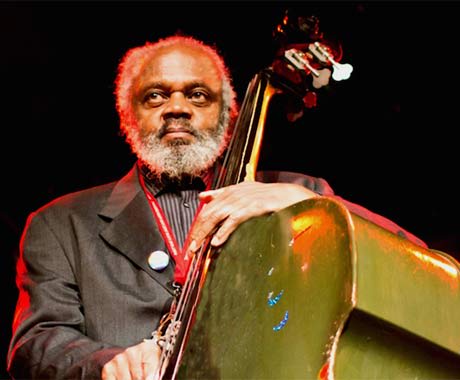Free jazz legend Henry Grimes has died of complications related to COVID-19. He was 84.
News of his death was confirmed by his wife, Margaret Davis Grimes, to the Jazz Foundation of America, according to WGBO.
Grimes was a Juilliard alumnus who came to prominence in the late 1950s as a bassist, playing with jazz greats including Thelonious Monk, Anita O'Day, Benny Goodman and legendary bassist Charles Mingus, who hired Grimes to be his band's second bassist.
In the 1960s, Grimes became entrenched in the free jazz movement, playing with the likes of Don Cherry, Steve Lacy and Pharaoh Sanders. At this time, he released his album The Call featuring clarinetist Perry Robinson and drummer Tom Price.
On a drive from New York to California in the late '60s, Grimes's bass was damaged — unable to afford the repairs, he pawned it off with the intention of buying it back later, but was unable to and left the music industry, working janitorial and construction jobs.
Grimes had been presumed dead by the jazz community until he was tracked down in 2002 by Marshall Marrotte, a fan and social worker. The resulting attention led to Grimes receiving a bass by William Parker and returning to music full-time.
He returned to recorded music with his 2009 album Solo and performed in Toronto in 2014.
News of his death was confirmed by his wife, Margaret Davis Grimes, to the Jazz Foundation of America, according to WGBO.
Grimes was a Juilliard alumnus who came to prominence in the late 1950s as a bassist, playing with jazz greats including Thelonious Monk, Anita O'Day, Benny Goodman and legendary bassist Charles Mingus, who hired Grimes to be his band's second bassist.
In the 1960s, Grimes became entrenched in the free jazz movement, playing with the likes of Don Cherry, Steve Lacy and Pharaoh Sanders. At this time, he released his album The Call featuring clarinetist Perry Robinson and drummer Tom Price.
On a drive from New York to California in the late '60s, Grimes's bass was damaged — unable to afford the repairs, he pawned it off with the intention of buying it back later, but was unable to and left the music industry, working janitorial and construction jobs.
Grimes had been presumed dead by the jazz community until he was tracked down in 2002 by Marshall Marrotte, a fan and social worker. The resulting attention led to Grimes receiving a bass by William Parker and returning to music full-time.
He returned to recorded music with his 2009 album Solo and performed in Toronto in 2014.
